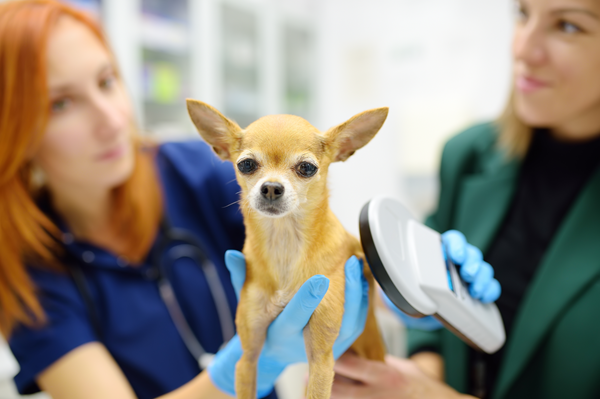
Every year on August 15, pet owners across the country are reminded of the importance of microchipping their furry companions as part of National Check the Chip Day. This observance, promoted by the American Veterinary Medical Association (AVMA) and the American Animal Hospital Association (AAHA), highlights a simple yet crucial step in ensuring the safety and well-being of our pets.
Why Microchipping Matters
Microchipping is a simple, painless procedure that involves inserting a tiny chip—about the size of a grain of rice—under your pet’s skin. This chip contains a unique identification number that can be read by a special scanner. Unlike collars and tags, which can easily be lost or removed, a microchip is a permanent form of identification.
The importance of microchipping becomes clear when we consider the statistics. According to the AVMA, pets with microchips are up to 20 times more likely to be reunited with their owners if they become lost. For cats, the likelihood increases by an astonishing 38 percent. Without proper identification, lost pets often end up in shelters, where the chances of being reunited with their families significantly decrease.
Microchips are now even more important as dogs need a microchip to enter (or re-enter) the United States.
Checking and Updating Your Pet’s Chip
While microchipping is a critical first step, it’s equally important to ensure that your pet’s chip is properly registered and that the contact information is up to date. Many pet owners don’t realize that they must keep their contact details up-to-date in the microchip registry for the chip to be effective. National Check the Chip Day serves as a reminder to double-check your registry information.
If your pet is already microchipped, take a few minutes to contact the microchip company and verify that your details are correct. If your pet isn’t microchipped yet, now is the perfect time to schedule an appointment with your veterinarian.
Peace of Mind for Pet Owners
Microchipping offers pet owners peace of mind, providing reassurance that your beloved animal will have a better chance of returning home safely if they ever go missing. It’s a simple, low-cost procedure that can make all the difference in a moment of crisis. This National Check the Chip Day, take a proactive step in protecting your pet—because their safety is worth it.
By making microchipping a priority, we can ensure that more lost pets find their way back to their families, turning a potentially heartbreaking situation into a happy reunion.
